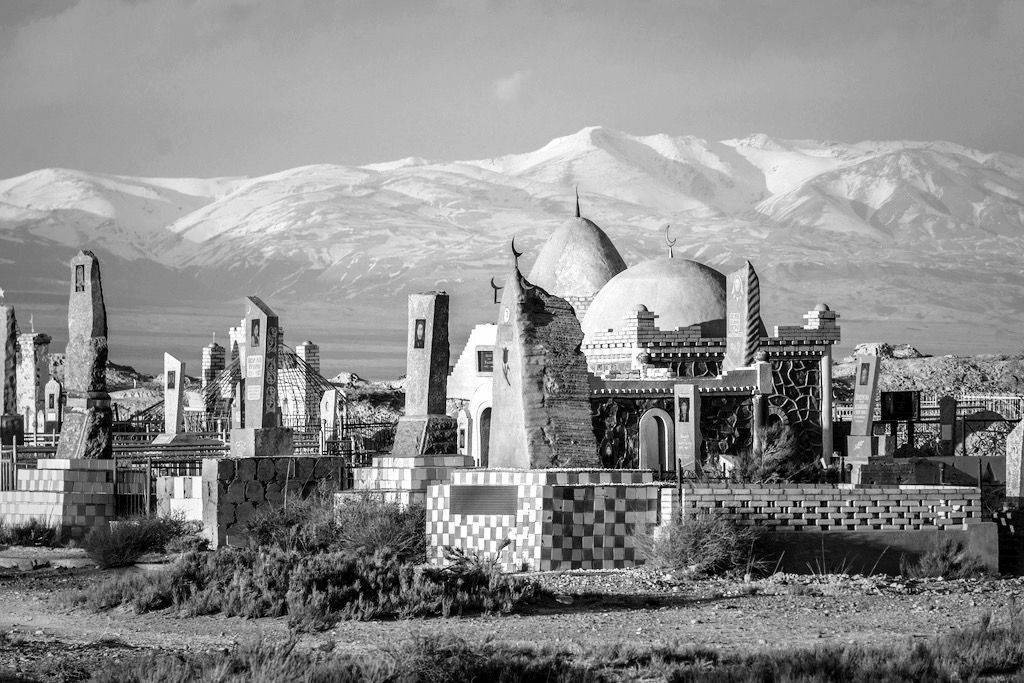Researcher safety in peace, conflict and security studies in Central Asia and beyond: Making sense and finding new ways forward.
The safety of researchers is a pressing issue, with ever new incidents of scholars and journalists being detained, interrogated or otherwise scrutinised by security forces both in Central Asia and the world over. We present here an overview of a recent roundtable held during the Joint CESS-ESCAS Conference in Bishkek in June 2017. Panellists and audience provided critical reflection on present contradictions and new ways forward for scholars interested in social and political dynamics in Central Asia. Participants discussed the different actors involved in the global political economy of knowledge production in, and on the region. Besides, they attended to the practical and ethical dilemmas of whether and how to adjust to the increased publicity, exposure and danger faced by researchers.
Part II — Discussion
In the discussion following the panellists’ statements, Emil Djuraev (AUCA and OSCE Academy in Bishkek) put forward the poignant question as to whether research on Central Asia was confronted with an irresolvable ‘multilemma’ given the increasing danger associated with fieldwork activities and the diverging interests of different stakeholders (most importantly governments, policy makers, researchers and society at large). He invoked the examples of peace and conflict research in Kyrgyzstan and Tajikistan. Especially in the latter case, the censoring of critical voices in research interaction is problematic, because social research is supposed to reveal and present such critical perspectives in the first place. In practical terms, especially when thinking about the way to manage fieldwork-based dissertation projects of students in Central Asia, Djuraev raised another provocative question, as to whether it was necessary to cover up research activities and anonymise one’s own and research participants’ identities in order to maintain one’s freedom to research.
The alternative, more long-term and cooperative approach was endorsed but also further scrutinised: Irna Hofman (University of Leiden) and Isaac Scarborough (London School of Economics) added that getting affiliations with local research institutes – as suggested by the panellists – was subject to significant difficulties, could take up to one and a half years or be precluded completely depending on one’s research topic. In the first year of her fieldwork, Hofman faced the paradox of being told to obtain a research permit, but no one being able to tell her how. Without strong institutional backing from her home university, and without Tajik institutions working on her discipline (rural sociology/rural development), she experienced that it was difficult to secure cooperation with a local academic partner in the first year. Furthermore, even in later years, formal research approval depended on permission from the Tajik MFA and backing by the Dutch embassy (based in Astana), which entailed even more uncertainty and bureaucracy. Overall, she experienced that it was necessary in all circumstances to reformulate the research focus to “de-politicize” the terms.
One anecdote shared by the panel chair, Dr Nick Megoran (University of Newcastle), exemplified the problems researchers and especially those people they simply socialise with can face even when long-term cooperation and dialogue are sought. In this case, over two decades ago, Megoran had written an academic article critically discussing a social problem in a particular region of Uzbekistan. The article was written for an English-language journal in the pre-internet days but, without either his permission or that of the publishers, it was translated and reprinted into a Russian-language journal with circulation in Uzbekistani university libraries. Its arrival in Uzbekistan evoked the indignation of the local authorities and led to repercussions for Megoran’s host institution and individuals who had cooperated with him. People he had socialized with or simply just met for tea were queried by Uzbek security services. Megoran admitted that he made a serious mistake here, and this was a salutary experience which almost made him abandon academic research for fear of causing harm to others. Nowadays, he is still granted visas to visit the country but has become aware of the wide reaching and attentive activities of security services, which include screening of English language publications about Uzbekistan. This is not simply the case of Uzbekistan. He added that he was once offered an interview with the President of a neighbouring, more liberal, country in return for compiling a list of foreign scholars writing critically about the regime. Of course, he refused this, but it served as an indication that all states in the region are interested in what researchers write, even if some have better-resourced monitoring systems than others. It should thus always be assumed that everything we write will be seen by governments and may be followed up on.

What ways forward are there for research on a region whose authorities, security services but also populations become increasingly, and sometimes overly, alert about the activities of both foreign and local researchers? One theme in this vein was the reflection on the institutional architecture and practices of research regulation and ethical approval. Further experiences of interaction with Ethical/Institutional Review Boards were shared to affirm that there was little to no scope of relying on the decisions taken by them. The most illustrative case was offered by a senior researcher, whose request to approve a student group trip to post-Maidan Kiev in spring 2016 was rejected, while the group was allowed to visit the (Autonomous) Republic of Abkhazia, whose separation from Georgia and gradual fusing of administrative and economic structures with the Russian Federation do not seem to pose any less of a risk and conflict potential. The same Review Board also approved research projects conducted in Crimea since 2014, where detentions and abductions among the population and of journalists have been reported. Isaac Scarborough further highlighted that the Ethical Review Boards (ERBs) at European universities are mostly preoccupied with the safety issues faced by researchers in order to minimise them according to the frameworks of the insurance companies they work with. A conception of research subjects and the interests they have in research, as well as possible repercussions they may face, is largely absent from these bodies’ guiding concerns and better addressed in US universities’ Institutional Review Boards (IRBs), according to Scarborough.
Scarborough also shifted the focus back to the issue of what constitutes research that is relevant or threatening to (national) security. He argued that this was ultimately up to the decision-makers in a given country and that researchers can do nothing but accept this prerogative. Tegizbekova affirmed this and pointed to the arbitrariness of this situation: ‘One cannot know what constitutes security-relevant research!’ This is something inherently depending on the respective context, agreed Heathershaw. The discussion also revolved around ways to prevent and mitigate safety risks; most importantly by building up long-term partnerships that aide the development of careful and sensitive approaches (Heathershaw), and by overcoming the fixation on semi-structured interviews usually employed by Western researchers, as well as their sense of superiority over under-developed and misconceived Central Asian societies and polities, which feeds into orientalising discourses that are most apparent in the BBC documentary ‘Dictatorland’ (Kluczewka).
Marc van Boemcken from the Bonn International Centre for Conversion (BICC) presented the approach of the centre’s project on ‘securityscapes’ in Kyrgyzstan and Tajikistan. In light of the knowledge about previous detentions and interrogation of researchers, the key focus is on researching meanings, experiences and understandings of security without invoking the term explicitly. Researchers thus identified various other frames as proxies for this key subject, e.g. ‘coping strategies’ and general ‘everyday practices’. Both von Boemcken and Heathershaw also pointed to the dilemmas occurring when publishing such research, however. The best example is Heathershaw’s recent co-authored book, Dictators without Borders, whose title accurately captures the argument made but can also, as he pointed out, serve to provoke discontent or even backlash among the examined countries’ authorities. ‘Careful’ and ‘nuanced framing’ or simply ‘writing’ the main research theme ‘out’ of the field research questionnaires, and back in when analysing them, thus provide productive ways of dealing with the dangers and risks of fieldwork. However, it is also necessary to reflect on the possible blind spots, risks and misunderstandings associated with such methodologies which, similar to the Search for Common Ground research project presented, operate on different levels or with different version of discourse, if not different realities. Exploring the entire repertoire of accidental ethnography and covert research techniques promises further potential for finding better solutions.
Reflection on new ways of doing research under difficult conditions and in ‘closed contexts’, is urgently needed. At the same time, there do not appear easy solutions or straightforward practices or standards that would yield themselves to be communicated in more formal or official ways, as for instance via an online platform or information exchange system, as was suggested in conclusion of the CESS Task Force on Fieldworker Safety. Participants largely agreed that maintaining and intensifying exchange on conferences and in other settings – e.g. university-based working groups – is the best way to accommodate the fast-changing nature of the problem. Jeanne Féaux de la Croix (University of Tübingen) further remarked that, after she had experienced difficulty in realising one cooperative project of her own, it occurred to her that published accounts of negative field experiences were largely lacking and confined to the informal realms of academic life. Picking up the theme of rejection of and resistance towards field research in teaching and publication outlets would be another way forward in trying to prevent researchers from taking too high risks in the field. Whether in written form, during panels or in fieldwork labs, seminars, research group meetings, it is clear that researcher (and research participant) safety need to receive more attention. The roundtable made an important first step in identifying issues and possible ways forward.
Acknowledgments
Many thanks to all participants for their involvement in the discussion and for being ready to have their contributions included in this summary. Special thanks to Nurbek Bekmurzaev for co-convening the roundtable and providing valuable input on the text.
Cover photo: Ronan Shenhav, Kyrgyz Muslim Cemetery, (CC) 2017.
Inline photo: Mark Horrell, Lenin Peak's summit ridge, (CC) 2015.
